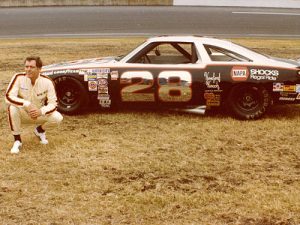
Buddy Baker, seen here from 1980, scored the victory in the first Busch Clash at Daytona International Speedway in 1979. Photo: NASCAR Media
The Busch Clash is slated for this weekend at the Los Angeles Coliseum, a made-for-TV event that has become more about hype than horsepower.
In a way, it’s a natural progression from the birth of the event. The main difference is that the focus today is on glitz and glamour, while the first event in 1979 was all about the money – $50,000 on the nose for the winner.
The Busch Clash came into being when Busch Beer began looking for a way to promote its product on the racing scene. The format was simple – it would be a 20-lap dash for a $150,000 purse at the 2.5-mile Daytona International Speedway among the pole winners on the NASCAR Cup Series tour from 1978.
The kicker – it would be run one week before the Daytona 500, and would be broadcast on a tape-delayed basis the day before the 500 – which would be shown live, flag-to-flag for the first time on CBS.
It was a concept right out of the short track era of NASCAR – a trophy dash for bragging rights and a paycheck.
Introduced as the “richest race per mile” by CBS Sports commentator Ken Squier in the broadcast opening, a nine car field was ready to take the green flag on February 11, 1979. The starting lineup had been determined by the eligible drivers all reaching at the same time into a bowl filled with ice and cold beer, with numbers on each can reflecting the starting spot.
Benny Parsons drew the pole, with Darrell Waltrip second. Buddy Baker, seeking his first-ever win at Daytona, drew third, with Bobby Allison, in the only Ford in the race, in fourth, and independent J.D. McDuffie in fifth. Lennie Pond, Cale Yarborough, David Pearson (in the only Mercury in the field), and Neil Bonnett rounded out the starting field.
Just to add to the excitement, both Yarborough and Pearson had to make engine changes before the running of the event.
When the green flag dropped, it became clear that Baker would be the man to beat.
Waltrip grabbed the initial lead, but on lap 2, Baker powered past to put his No. 28 Harry Ranier Oldsmobile on the point.
From there, Baker and Waltrip began to pull away from the rest of the field. Baker, known as a hard charger who would run the car as hard as it would go on each lap, had such a strong car that he and Waltrip had no competition. Even with Yarborough and Parsons leading a four-car draft, they could not close on the leaders.
Waltrip took one shot at the lead with five laps to go. On lap 14, Waltrip used a slingshot pass to take the lead in turn three. But Baker quickly reeled in Waltrip, and going into turn one, it was Baker returning easily to the lead.
Waltrip would take one more shot for the win on the final lap, but Baker easily beat him to the finish line to get the victory and the $50,000 payday.
“I was confident I had the car,” Baker told CBS Sports reporter Brock Yates in victory lane. “I just….I’ve had so many things happen down here that you just never know. But I had the race car. I could drive around the bottom of the race track and that was the difference.
“When Darrell tried to come up on me, I run the bottom of the race track and he couldn’t stick down there and that was the winner.”
Waltrip pocketed $18,000 for his second place finish. Some 10 seconds behind the lead duo, Yarborough edged out Parsons in a photo finish for third, with Allison in fifth.
Person, Pond, Bonnett, and McDuffie rounded out the finishing order. McDuffie was the only car not to finish, having suffered engine woes with three laps remaining.
The strength Baker showed in the Busch Clash would make him the favorite for the upcoming Daytona 500. He would put his car – nicknamed “The Gray Ghost” – on the pole for the “Great American Race” with a speed of 196.049 mph. He’d back that up in Thursday’s 125-mile qualifying race, making up a 4.1-second deficit on Yarborough in 10 laps after a series of pit stops to score the win.
But Baker’s dream week came to an end on race day. After leading the first 15 laps of the Daytona 500 – all of them under caution as NASCAR tried to dry the track after morning showers in the Daytona Beach area – Baker quickly fell back. It was reported his Olds was running on just seven cylinders. Baker soon was on pit road with what seemed to be an ignition issue.
“It’s got something fouled out in the engine,” Baker told CBS Sports pit reporter Ned Jarrett from behind the wheel as his crew worked to change the spark plugs and checked the ignition. “It won’t run.”
In all the excitement, a crew member unplugged the ignition, and then plugged it right back into the bad system instead of the backup one. When the car again wouldn’t fire, the team assumed the engine had failed and parked the car for the day.
“I don’t believe it,” a disappointed Baker told Jarrett after exiting his car. “As good as that car run all week, and then today on race day, I don’t know.”
When the team got the car back to the shop, engine builder Waddell Wilson switched the ignitions, and the engine fired up loud and strong.
But Baker got his revenge one year later, winning the pole again and this time backing it up with a victory in the 1980 Daytona 500.
Despite the disappointment in the 500, Baker could still hold his head high – and his wallet fat – as the winner of the inaugural Busch Clash. No matter who wins the latest running of the event, Buddy Baker will always be the first to have done it.
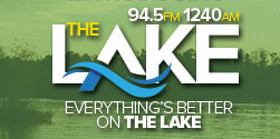

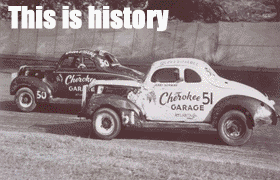
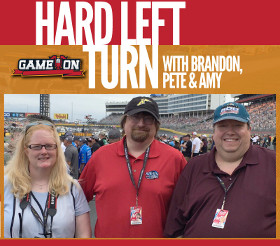
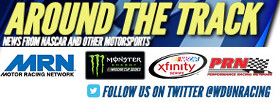
















Leave a Reply
You must be logged in to post a comment.